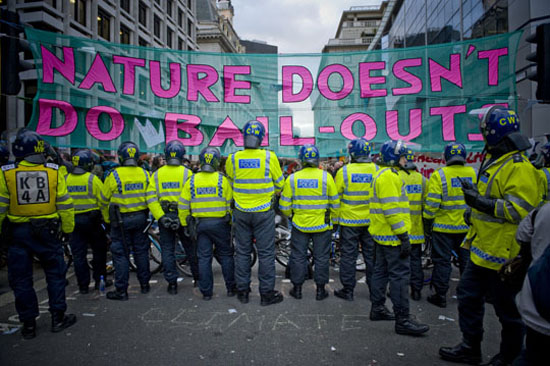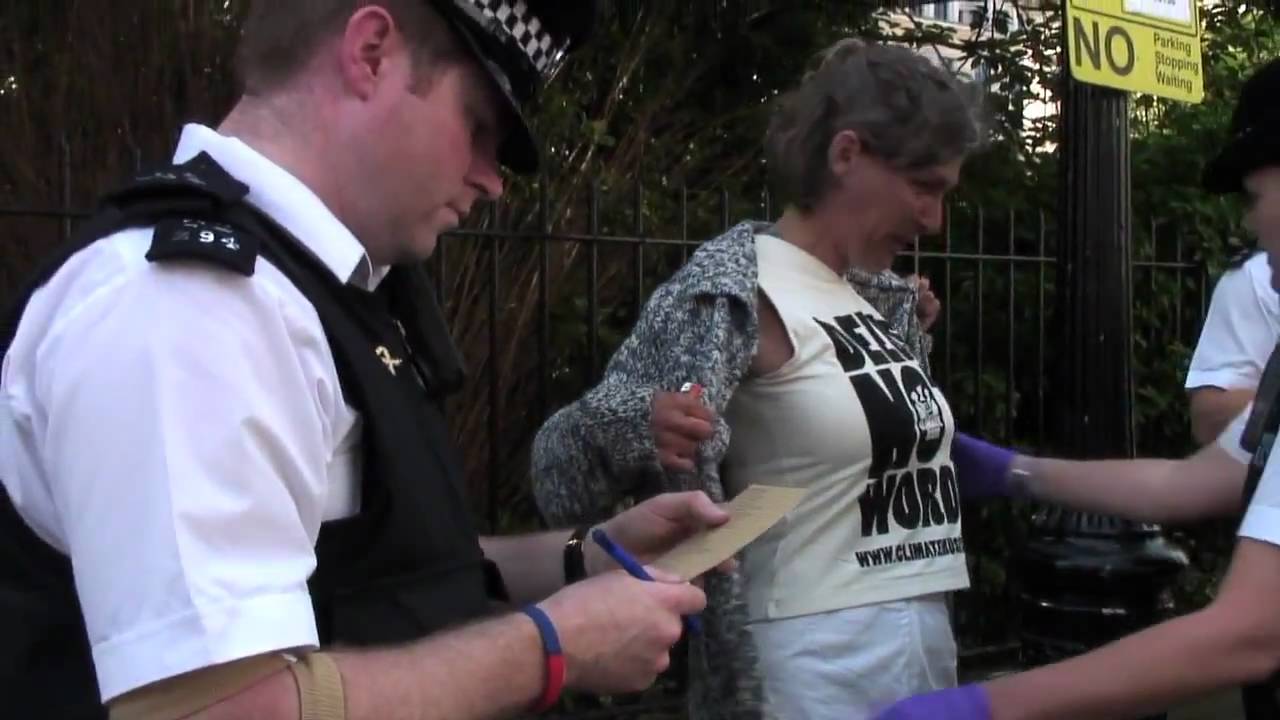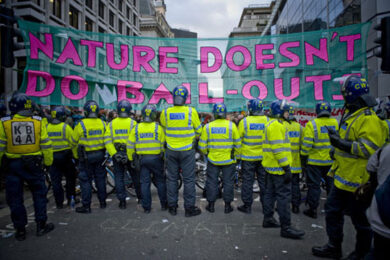No, Just Do It is not a history of Nike, far from it. This documentary on "modern-day outlaws" is firmly in the anti-capitalist camp. We know this, because the first interviewee, Marina, offers tea by donation, rather than asking people to pay for it. Yes, this is a very English kind of social activism, in which everyone is very polite, as well as being very, very angry about carbon emissions.
After a dust-up in The City of London at the G20 protests, the film pitches its tent at the 2009 Climate Change camp, as an assemblage of fresh-faced environmental campaigners gathers in Blackheath to create a temporary community and upset “The Man”. Cue amusing attempts to keep the "target" secret, while being watched by the police from the distance (not to mention the, uh, camera of the filmmaker).
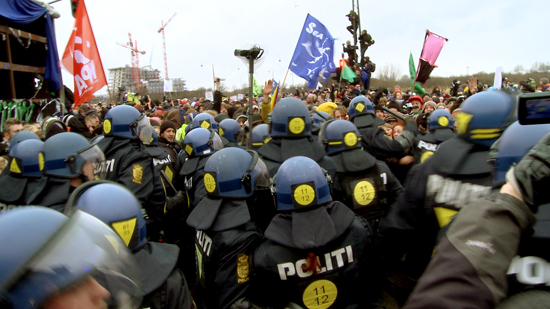
And herein lies the problem of Just Do It: just what is director Emily James’ role? Observer? Participant? Sympathiser? She never lays her cards on the table, remaining behind the camera as a disembodied voice asking questions, until such time as her producer is arrested or she herself is asked by police to switch it off, at which point she indignantly claims that her rights as a journalist — an accredited journalist at that — are being violated.
But, if you are filming people engaging in illegal acts and bragging about it, can you really claim objectivity? And just how did James get such access? Had she presented her her work as an authored documentary, explaining her position and her negotiations with the activists, or allowed that to be seen on camera, it would hold much more weight.
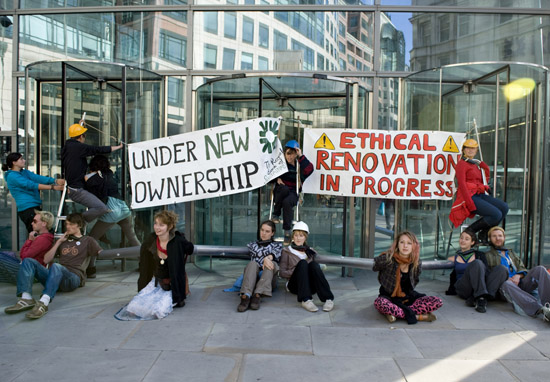
As it is, the narration by Billy Childish look-alike James Leadbitter, who also appears on the front line, as a suit-clad Carbon Trading proponent (ironic activism!), is its weakest point. Leadbitter is given to exclaiming things like (paraphrase):"And so the camp shut down for another year, having spawned a new generation of activists, keen to be a thorn in the side of capitalism". Really? Can this statement be proven?
Which is a shame, because the causes espoused — fighting climate change and holding big business to account — are important and the people involved in these battles have a lot to say. Over the course of a year, James’ camera follows actions at power stations, banks, a wind turbine factory and the UN climate change summit in Copenhagen — brilliantly captured footage, building genuine tension, as the activists plan their actions, knowing they face the risk of arrest. And indeed the police, especially in Copenhagen, are genuinely frightening, dressed in black and wielding guns and dogs.
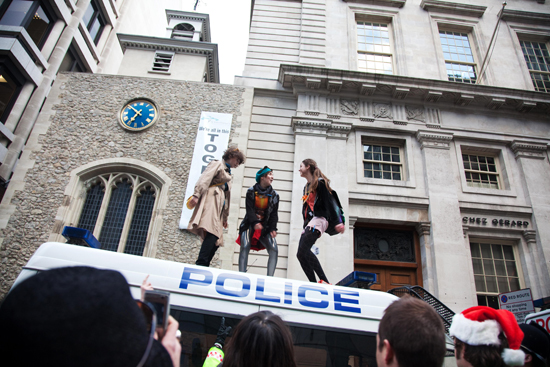
In terms of creating a mass movement, though, only the activities at Hartlington show promise. A small village that was threatened by the (now abandoned) proposed expansion of Heathrow airport, Hartlington is targeted by Plane Stupid, some of whom move into the village to work with local activists who are protesting the development. Taking over a disused greenhouse to show (a vaguely defined) alternative way of living, they seem to find a receptive audience among the community, who bring supplies and attend events there. Surely, much more such cooperation would be needed to expand this activity from a hardcore interest into a grassroots movement with real political clout.
The question arises: why do it? Why put your body on the line for an action that may be futile, given the forces arrayed against you, the state, police, business, among them? According to the activist point of view presented in this film: if something makes you angry, you have to do something about it, rather than remain passively angry. And everyone can do something. "Just do it," says Marina, the tea-pouring lady, at the end. Shame about the corporate slogan, but the message is clear.

